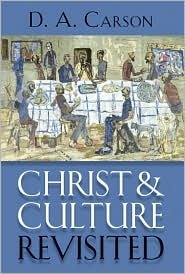When we decry the most virulent forms of secular humanism, we are tempted to argue that it is a form of “religion” (i.e., with its own absolutes, its own pursuit of the ideal life, its own “gods,” and so forth), intimating, implicitly or explicitly, that secular humanists cannot fairly write us off as people of “religion” when they are people of “religion” as much as we — though a few minutes later, in another discourse, we decry “religion,” or, in another conversation, defend religious people over against secularists.
Welcome back. Just a moment while we sign you in to your Goodreads account.


